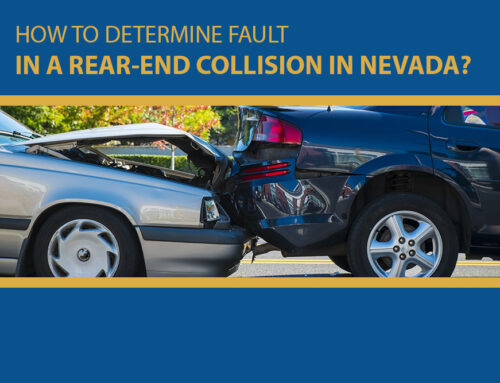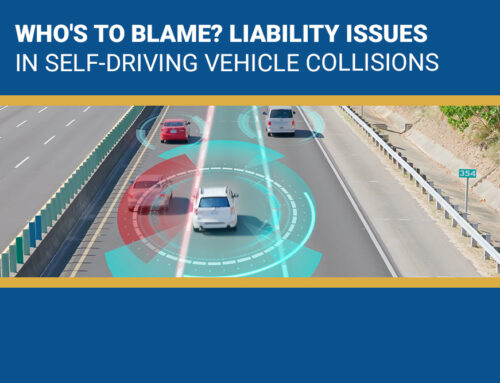
Consider you’re walking through a crowded Nevada shopping mall when suddenly, without warning, someone purposefully bumps into you, causing you to fall and sustain an injury. This incident isn’t just a case of simple clumsiness; it’s an example of an intentional tort where someone deliberately caused harm.
In Nevada, understanding the nuances of such intentional actions and their legal implications is crucial, especially when it comes to seeking justice and compensation. This article delves into how Nevada law treats intentional torts in the context of fault allocation. It explores the distinction between intentional misconduct and accidents, illustrating the legal landscape that determines responsibility and compensation in such cases.
Through this exploration, we’ll uncover how victims can navigate the system to ensure their rights are protected and offenders are held accountable.
What is a Tort?

Any improper act that causes harm to someone else is termed a tort. A court will hold the wrongdoer liable. Torts are classified into three sorts, each encompassing a wide range of conduct and injuries. According to tort law 101, there are three basic types:
- Negligent tort: This sort of tort is not caused by the at-fault person’s intentional actions. Rather, they occur when a person fails to meet the reasonable level of care owed to others.
- Intentional torts: Intentional torts occur when the person at fault deliberately acts or fails to act in a way that causes harm.
- Strict liability: These torts do not require proving fault. Regardless of his or her mental condition or intent, the individual may be held accountable for the act committed.
Understand Intentional Torts

Intentional torts are actions performed by one person with the intent to hurt another. In contrast to accidents or negligence, which can cause harm unintentionally, intentional torts include deliberate wrongdoing. Here are some common examples:
- Assault: An act that causes another person to fear impending violence.
- Battery: Refers to physical contact that causes harm to another person without their consent.
- Trespassing: It means entering another person’s property without permission.
These activities contradict not only social conventions but also legal requirements designed
to ensure public safety and order. In Nevada, as in many other places, the law is strict against such behavior.
Nevada’s Legal Approach to Intentional Torts
Nevada law recognizes the seriousness of intentional torts and assigns fault accordingly. The state’s approach can have a substantial impact on both the victim’s ability to seek compensation and the perpetrator’s liability. Here’s how Nevada deals with these cases:
- Strict Liability: In circumstances of intentional torts, the perpetrator is frequently held rigorously liable. This means that the victim does not have to prove carelessness or recklessness, just that the act was purposeful and caused harm.
- Punitive Damages: In circumstances involving intentional torts, Nevada courts may award punitive damages. These are intended to punish the offender and prevent similar behavior in the future. Punitive damages, as opposed to compensatory damages, aim to penalize the perpetrator rather than recover the victim’s losses.
- Criminal vs. Civil Action: Many intentional torts might be considered criminal charges. Victims may seek compensation through civil action, regardless of whether criminal charges are made. However, a criminal conviction can improve a civil case by firmly establishing the deed and intent.
Fault Allocation in Nevada
Determining Fault in cases involving intentional torts requires extensive legal examination. Nevada applies a comparative negligence rule, but its application differs in circumstances of purposeful behavior vs accidents or negligence:
- Comparative Negligence: Typically, this doctrine decreases the amount of compensation the victim can receive based on their level of fault. However, in circumstances of intentional torts, the perpetrator’s liability is frequently seen more severe, reducing the victim’s comparative fault unless there is significant evidence demonstrating provocation or involvement to the incident.
- Contributory Fault: While unusual in intentional tort cases, a victim’s acts can have an impact on the case. For example, if a victim caused a conflict that resulted in an assault, the fault allocation and damages given may be affected.
The interaction of these legal principles in Nevada’s courts emphasizes the complexities of resolving situations involving intentional acts. Victims must understand these distinctions in order to successfully navigate the legal system and receive the compensation they deserve.
Challenges of Proving Intentional Torts

In Nevada, proving an intentional tort requires demonstrating beyond a reasonable doubt that the offender intended to inflict harm. Intent is a mental state that is not always readily observable, making it substantially more difficult to prove than negligence. Here are some important aspects in proving intentional torts:
- Direct evidence: This comprises any explicit statement or conduct in which the defendant expressed intent to inflict injury, such as threats made prior to an assault.
- Circumstantial Evidence: In many cases, intent must be deduced from the circumstances of the event. For example, if someone lays a trap that injures another person, the nature of the trap and its placement can be used to determine the intent to damage.
- Witness Testimony: Witnesses who observed the occurrence or can testify to the defendant’s mental state can be extremely valuable. Their accounts can back up claims regarding what the defendant intended or desired to happen.
- Expert Testimony: In some circumstances, psychological specialists may be called upon to examine the defendant’s behavior and mental condition, providing information about their intentions at the time of the act.
Proving intent is crucial because, without it, a case that appears to be an intentional tort may be regarded as simply negligence.
Contact an Experienced Nevada Tort Lawyer Today!
If you have been the victim of an intentional tort, you must act quickly to safeguard your rights and seek the justice you deserve. Understanding your legal alternatives and the law’s nuances might significantly influence your case’s outcome.
Lach Injury Lawyers in Las Vegas, Nevada can provide skilled legal counsel and committed representation in Nevada. Their expert team can offer you the advice and help you need to manage your situation and seek appropriate compensation properly.






